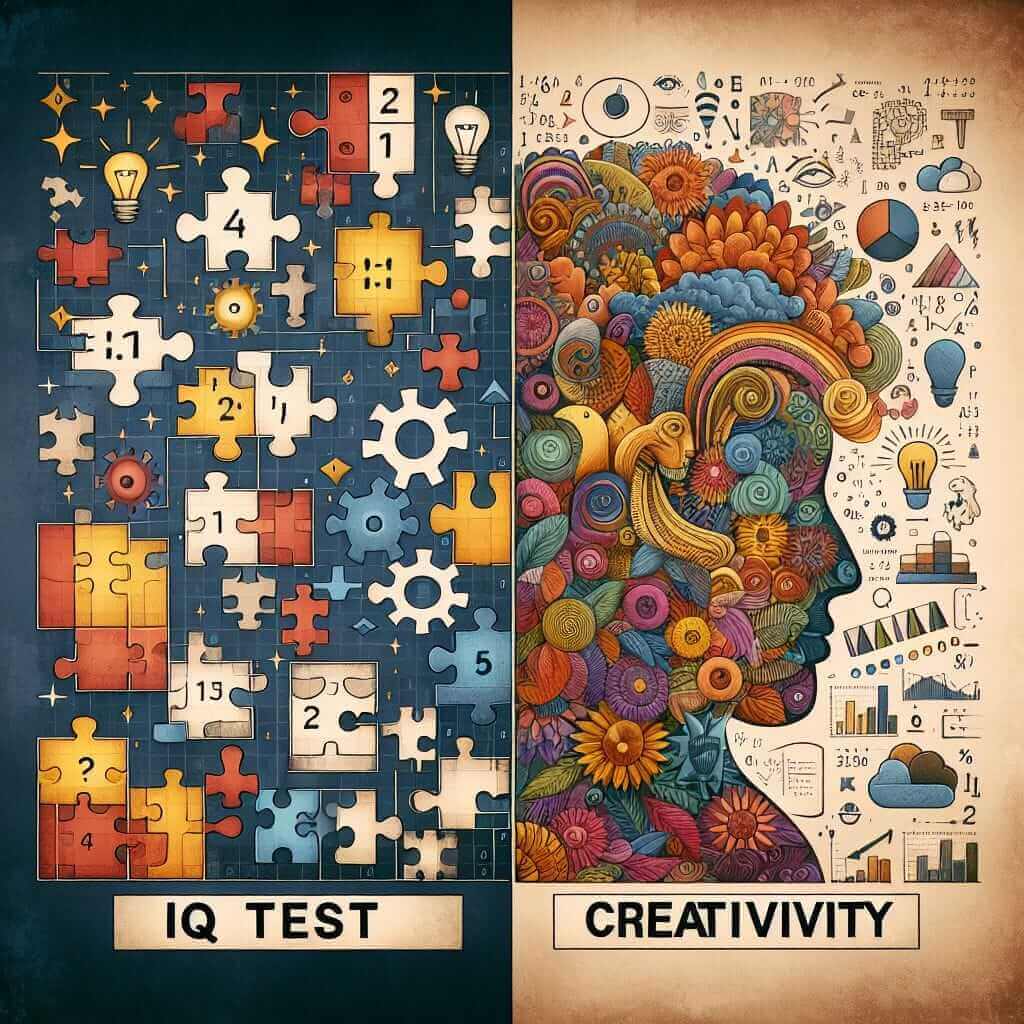As an IELTS instructor with over 20 years of experience, I often encounter students who are fascinated by the relationship between intelligence and creativity. This curiosity frequently manifests in IELTS Reading sections, with passages exploring the efficacy of IQ tests in measuring creativity. Let’s delve into this topic, analyzing how it might appear in your IELTS exam and providing strategies for success.
Understanding the Connection: IQ Tests and Creativity
It’s crucial to recognize that IQ tests are designed primarily to measure logical reasoning, verbal fluency, and mathematical abilities. While these are undoubtedly important cognitive skills, they don’t encapsulate the multifaceted nature of creativity. Creativity encompasses divergent thinking, originality, and the ability to generate innovative ideas, often extending beyond conventional thought patterns.
Therefore, an IQ test alone cannot definitively prove or disprove an individual’s creative potential.

Navigating IELTS Reading Passages on this Topic
You might encounter IELTS Reading passages discussing:
- Limitations of IQ Tests: These passages might highlight the narrow scope of IQ tests, emphasizing their inability to assess qualities like imagination, artistic talent, or innovative problem-solving skills – all crucial aspects of creativity.
- Alternative Measures of Creativity: Passages may introduce concepts like the Torrance Test of Creative Thinking (TTCT), which focuses on fluency, flexibility, originality, and elaboration in a person’s thinking.
- Real-world Examples: Expect examples of individuals who might possess exceptional creativity without necessarily having exceptionally high IQ scores. Conversely, the passage might mention individuals with high IQs who may not demonstrate remarkable creative abilities.
Example Passage:
“While IQ tests remain valuable tools for assessing logical-mathematical intelligence, their ability to gauge creativity is debatable. The very nature of standardized testing, with its emphasis on convergent thinking (finding the single “correct” answer), may stifle the divergent thinking processes that fuel creative expression.”
Question Types:
- True/False/Not Given: Be prepared to analyze statements about the relationship between IQ tests and creativity, determining if the passage supports, contradicts, or doesn’t provide enough information to answer.
- Matching Features: You may be asked to match specific characteristics or limitations to either IQ tests or creativity assessments.
- Sentence Completion: Use keywords from the passage to accurately complete sentences related to the topic.
Tips for Success:
- Develop Critical Reading Skills: Don’t just skim for information. Practice active reading, identifying the author’s main arguments and supporting evidence.
- Vocabulary is Key: Familiarize yourself with words related to intelligence, creativity, assessment, and standardized testing. This will significantly aid your comprehension.
- Practice Makes Perfect: Regularly engage with IELTS Reading practice materials, specifically focusing on passages related to psychology, education, and cognitive sciences.
Conclusion
Remember, while a high IQ score might indicate strong cognitive abilities, it doesn’t necessarily guarantee creativity. Similarly, a lower IQ score doesn’t automatically preclude someone from being highly creative. By approaching this topic with a critical eye and honing your IELTS Reading skills, you’ll be well-equipped to tackle any passage that comes your way.